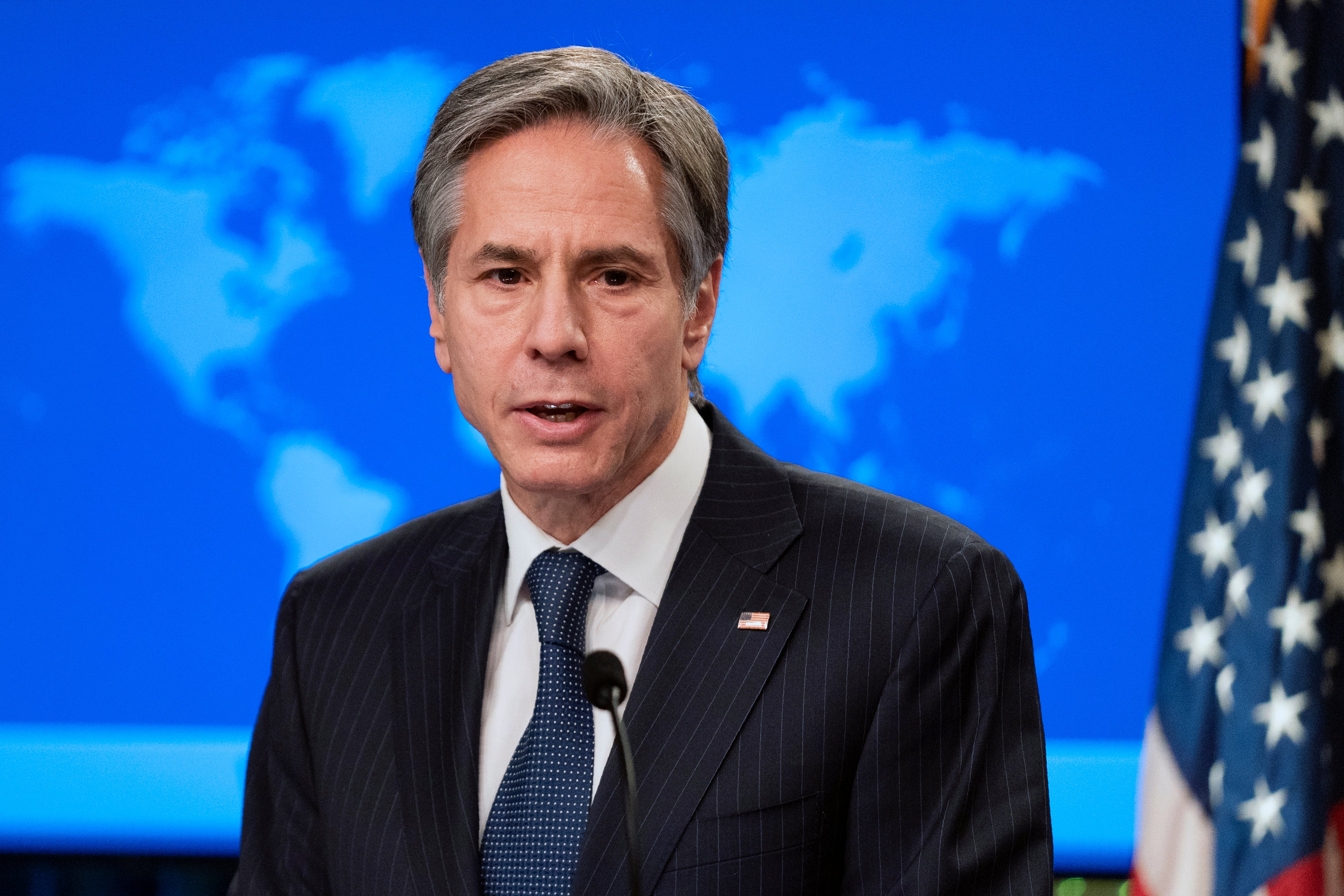NKorea ignores US offer for talks, citing its hostile policy
North Korea says it will ignore a U.S. offer for talks unless it withdraws its hostile policy on the North, days after Washington said it reached out to Pyongyang through various channels

Your support helps us to tell the story
From reproductive rights to climate change to Big Tech, The Independent is on the ground when the story is developing. Whether it's investigating the financials of Elon Musk's pro-Trump PAC or producing our latest documentary, 'The A Word', which shines a light on the American women fighting for reproductive rights, we know how important it is to parse out the facts from the messaging.
At such a critical moment in US history, we need reporters on the ground. Your donation allows us to keep sending journalists to speak to both sides of the story.
The Independent is trusted by Americans across the entire political spectrum. And unlike many other quality news outlets, we choose not to lock Americans out of our reporting and analysis with paywalls. We believe quality journalism should be available to everyone, paid for by those who can afford it.
Your support makes all the difference.North Korea said Thursday it will ignore a U.S. offer for talks unless it withdraws its hostile policy on the North, days after Washington said it reached out to Pyongyang through various channels.
The statement by Choe Son Hui, the first foreign minister, came hours before the top diplomats and defense chiefs of the United States and South Korea meet in Seoul in their first joint talks in five years to discuss North Korea’s nuclear program.
“We don’t think there is need to respond to the U.S. delaying-time trick again,” Choe said in a statement carried by state media. “We have already declared our stand that no (North Korea)-U.S. contact and dialogue of any kind can be possible unless the U.S. rolls back its hostile policy toward (North Korea). Therefore, we will disregard such an attempt of the U.S. in the future, too.”
U.S.-led diplomacy on North Korea’s nuclear program remains stalemated for about two years because of disputes over U.S.-led sanctions on the North. Experts are debating over whether the United States and its allies should settle for a deal that would freeze North Korea’s nuclear activities in return for relaxing sanctions to prevent its arsenal from further growing.
Earlier this week, the powerful sister of North Korean leader Kim Jong Un threatened to abandon rapprochement deals with South Korea and warned the United States to “refrain from causing a stink,” while criticizing regular U.S.-South Korean military drills that her government views as an invasion rehearsal.
Choe again took issue with this month’s drills, saying that the United States “openly started aggression-minded joint military exercises targeting us.”
Some experts say North Korea, which is eager to win sanctions relief, may further raise animosities with missile tests to boost its leverage in potential negotiations with the United States. North Korea’s moribund economy is suffering further setbacks because of the pandemic-related border closure that has significantly shrunk its external trade and a spate of natural disasters last summer.
Blinken said during a visit to Tokyo earlier this week that Washington reached out to North Korea through several channels starting in mid-February, but it hasn’t received any response. He said the Biden administration was looking forward to completing its policy review on North Korea in coming weeks and was looking both at possible “additional pressure measures” and “diplomatic paths.”
When Blinken met South Korean Foreign Minister Chung Eui-yong on Wednesday, he said the United States will work with South Korea, Japan and other allies to achieve the denuclearization of North Korea. According to the State Department, Blinken and Chung also reaffirmed a shared commitment to address North Korean nuclear and ballistic missile issues that they said are “a priority for the alliance.”
Blinken and Secretary of Defense Lloyd Austin are in Seoul for Thursday’s “two plus two” meeting with their South Korean counterparts, the first such contact between the two countries in five years. Before coming to Seoul, they had similar security talks with Japanese officials in Tokyo.
Blinken and Austin’s Asian trip is the first overseas tour by Cabinet-level officials of the Biden administration since its inauguration in January. Biden is pushing to restore alliances that were frayed under his predecessor Donald Trump’s “America First” approach and bolster a U.S. leadership on the world stage.
South Korea and Japan, which together host a total of about 80,000 U.S. troops, are at the center of the Biden administration’s efforts to return the Asia-Pacific to the top of the U.S. foreign policy agenda to cope with a rise in China's power.
___
Associated Press writer Kim Tong-hyung contributed to this report.